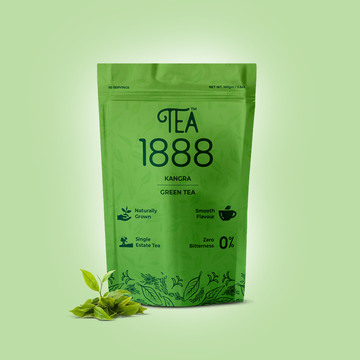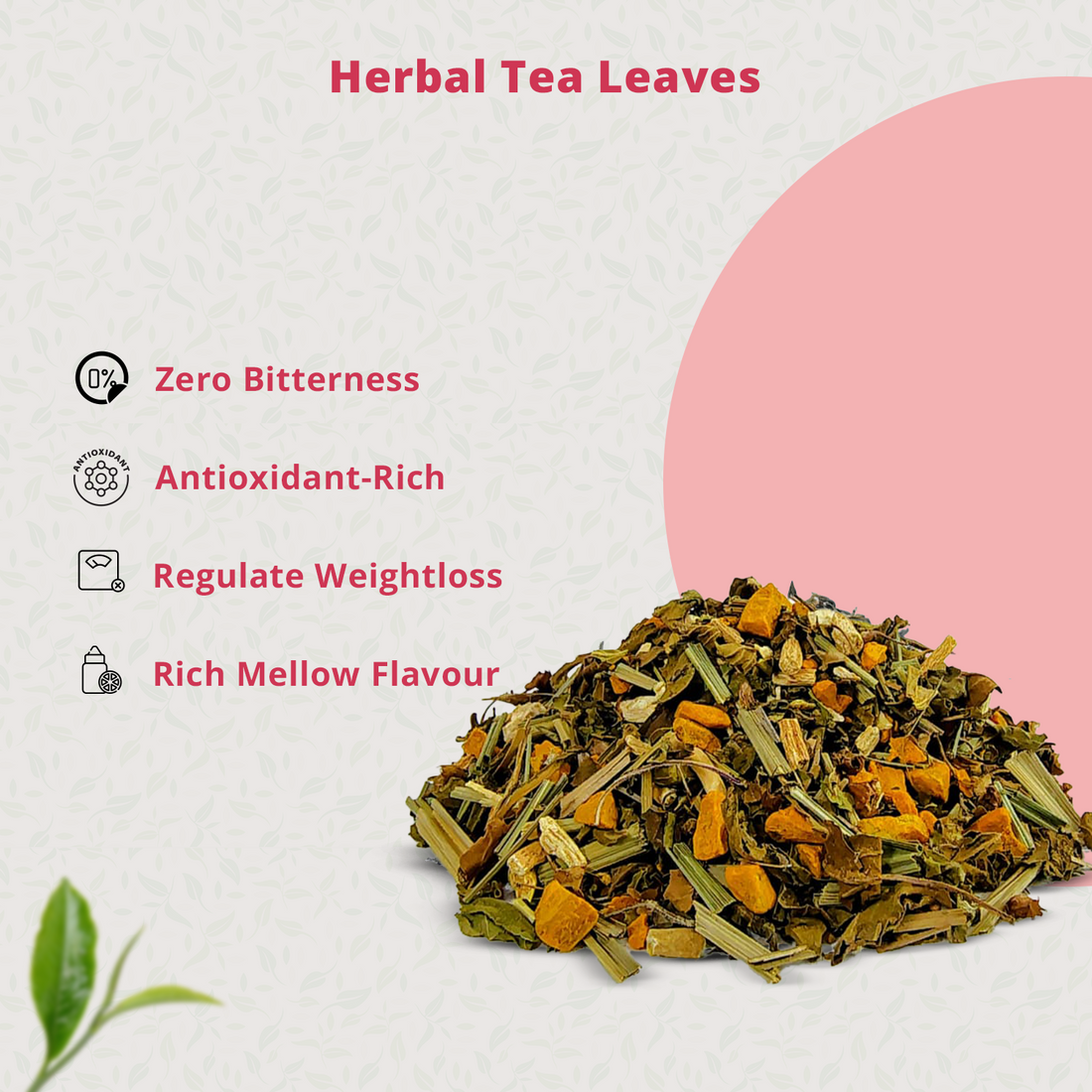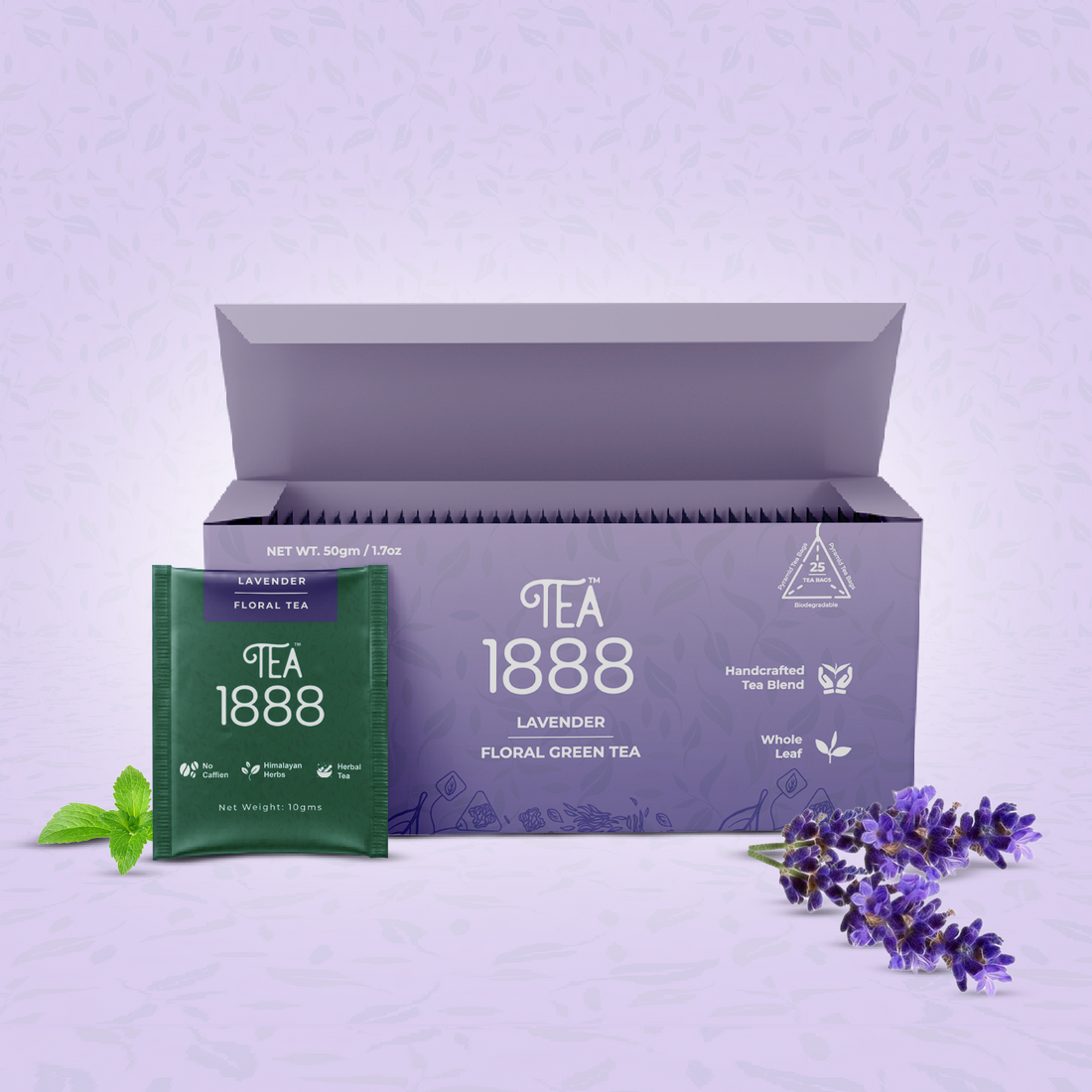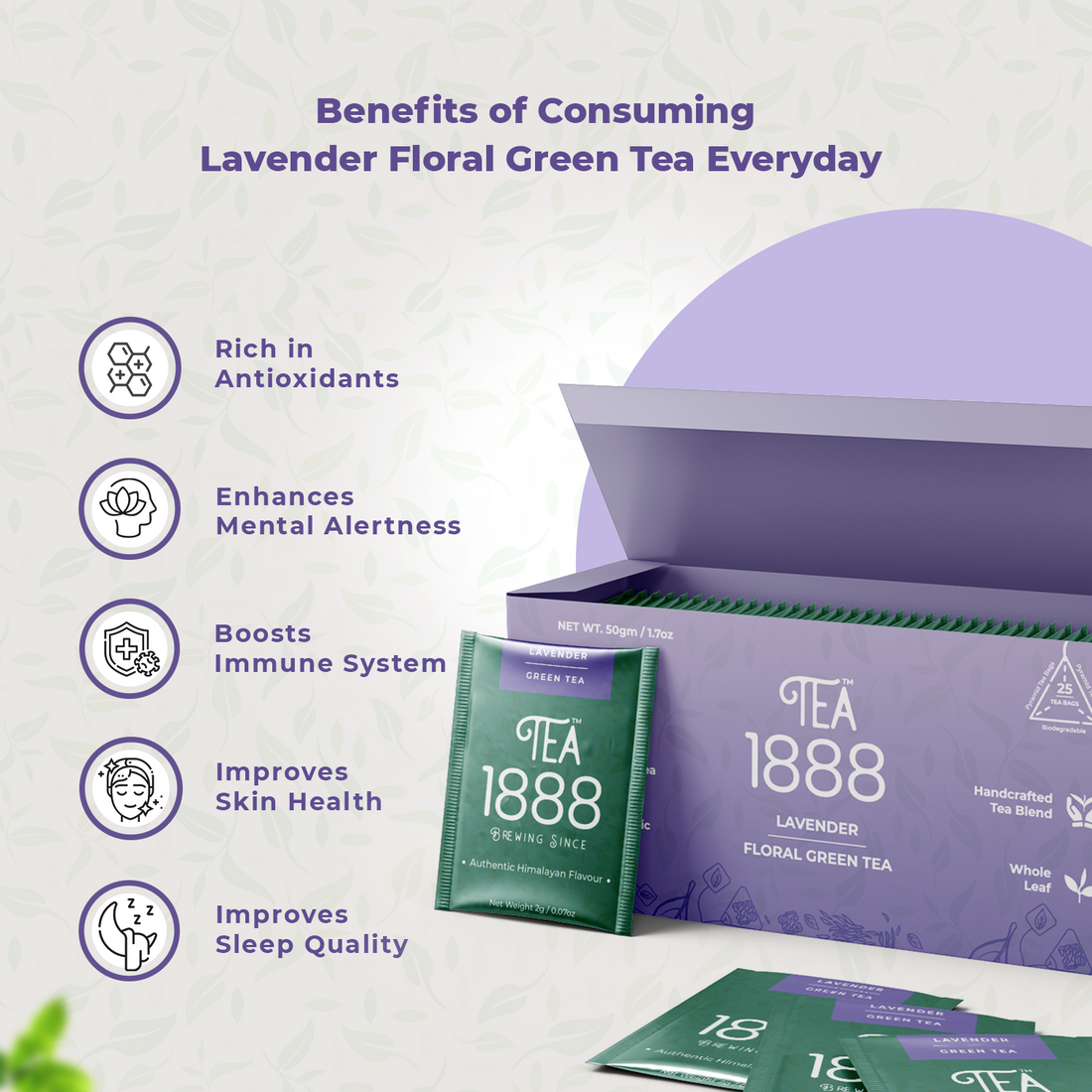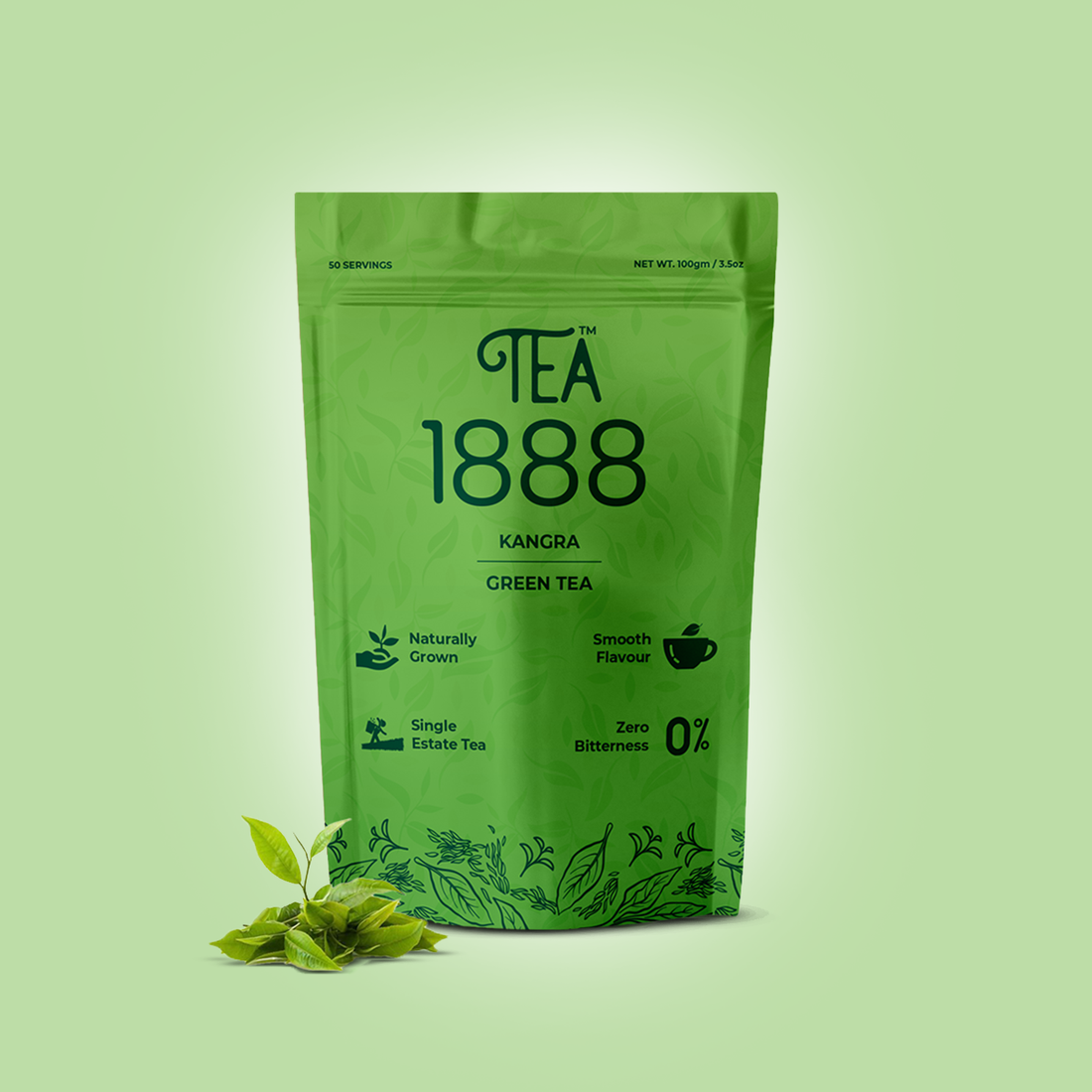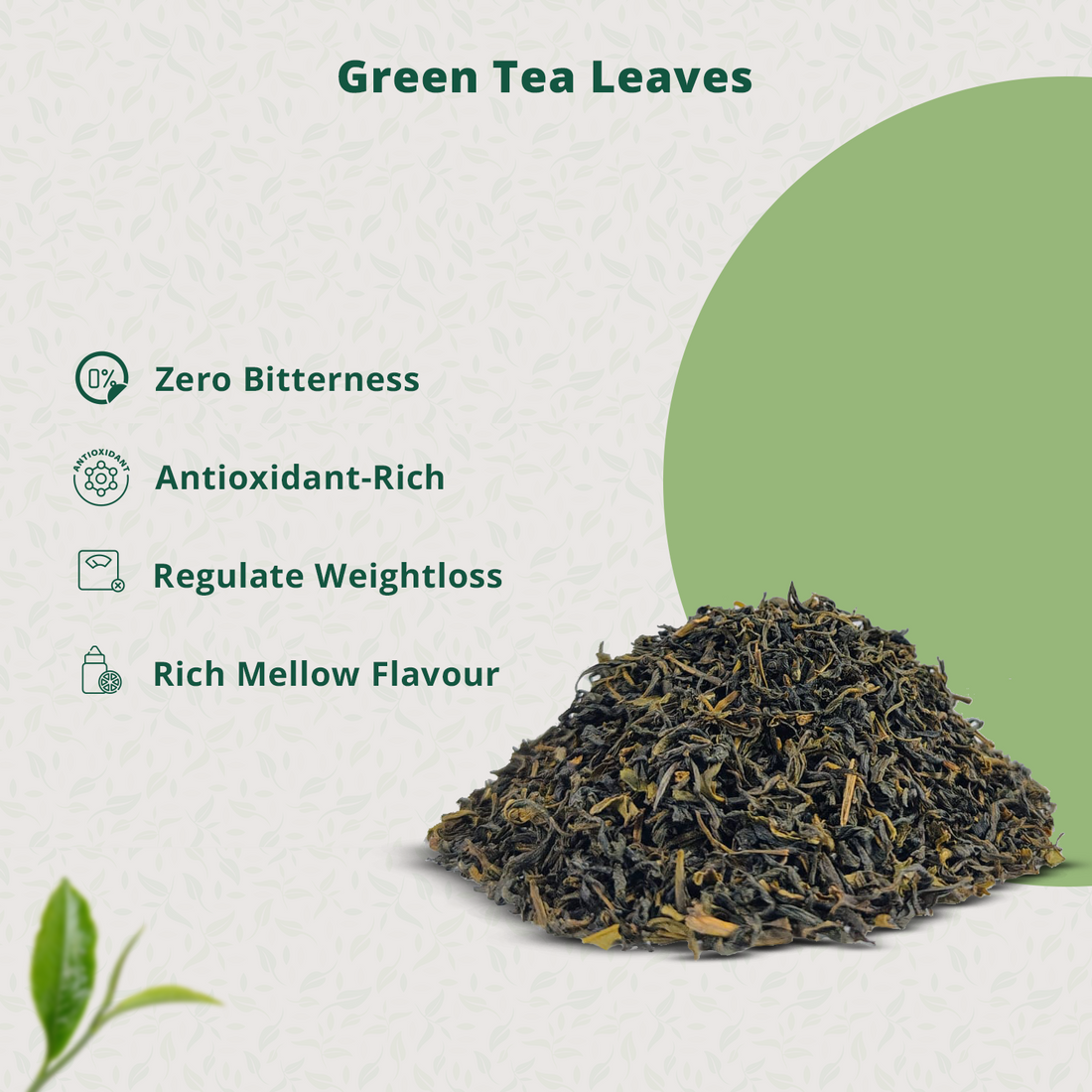Most people don't think about mint green tea's side effects while enjoying this refreshing drink, yet understanding its benefits and risks is vital to your wellness trip. This beverage has been accessible to more people of all cultures for centuries. Early Native Americans used wild mint leaves to soothe upset stomachs. Mint contains the highest amount of antioxidants among all existing herbs, which makes it a natural wellness powerhouse.
The combination of mint and green tea creates an even more potent health elixir with many benefits. Your gastrointestinal tract's muscles relax with fresh mint tea, and this reduces bloating and indigestion. The natural antimicrobial properties help curb bad breath. Your mouth's bacteria decrease, which promotes better oral hygiene. This powerful blend delivers vitamin C, antioxidants, and anti-inflammatories that deserve equal attention to their side effects.
Mint green tea might not suit everyone, and with good reason, too. Some people may experience adverse reactions that outweigh the benefits. You should know if mint green tea works for you, and it's significant to understand who needs to be careful or avoid it, especially those with certain health conditions or specific medications.

What is Mint Green Tea?
A delightful mix of two powerful plant ingredients, mint green tea brings together the earthy richness of green tea leaves with the cooling freshness of mint. This aromatic drink has deep roots in Moroccan culture, where it stands as a symbol of hospitality and friendship. People often serve it during social gatherings.
Key ingredients: mint, green tea, and their roles
Mint green tea has two main components that work together in a mutually beneficial way. Green tea leaves are rich in catechins, powerful antioxidants that you rarely find in other substances. These compounds help your body fight harmful free radicals and protect against oxidative stress. The green tea also packs moderate amounts of caffeine and L-theanine that boost mental clarity and provide gentle energy.
The mint leaves (usually spearmint or peppermint) add menthol, which creates that distinctive cooling sensation and refreshing smell. Mint contains rosmarinic acid that helps reduce allergy symptoms. The mint also helps digestion by relaxing digestive muscles and stopping smooth muscle contractions.
Difference between mint tea and mint green tea
People often mix these drinks up, but they're nowhere near the same thing. Pure mint tea comes from steeping dried or fresh mint leaves in hot water. This herbal infusion (tisane) has no caffeine at all.
Mint green tea, on the other hand, mixes green tea leaves with mint. This creates a drink with some caffeine, though less than coffee. The traditional Moroccan mint tea specifically uses green tea (often the "gunpowder" variety) mixed with fresh spearmint leaves, and sometimes sugar.
Is mint green tea good for you?
Mint green tea is a great way to get many potential health benefits. The combination packs more nutritional punch than either ingredient alone. Green tea's catechins boost metabolism and fat burning, which might help burn an extra 80-100 calories each day. The mint adds its own digestive perks through natural compounds that help relax gastrointestinal muscles. Together, they make what many call it a "powerhouse" drink that supports digestion, delivers antioxidants, and tastes refreshing too. Notwithstanding that, you should be careful if you have specific health conditions like GERD or take certain medications. We'll explore these potential risks in the next sections.
Top 8 Mint Green Tea Benefits
Mint green tea tastes great and packs an impressive range of health benefits. This aromatic blend helps with everything from digestion to immunity. Let's look at what makes it so special.
1. Helps with digestion and bloating
The menthol in mint naturally relaxes your digestive tract muscles and reduces bloating discomfort. Studies show that mint tea helps with digestion and irritable bowel symptoms by relaxing stomach muscles and improving bile flow. Food moves through your stomach faster, which brings relief after big meals. The polyphenols in green tea work with mint to improve metabolism, so your body processes food better. These ingredients team up to ease stomach discomfort and support healthy digestion.
2. Eases cold, cough, and nasal congestion
Mint green tea becomes your natural defender during flu season. The menthol in peppermint clears stuffy noses. Research shows that peppermint oil reduces swelling in your nose's blood vessels, which helps you breathe easier. The warm tea helps break up mucus and keeps you hydrated. A cup of mint green tea brings welcome relief when you're fighting a cold.
3. Supports weight management naturally
The catechins in green tea boost fat burning and metabolism, which could help burn 80-100 extra calories each day. The caffeine and catechins in green tea boost energy use, while mint helps control hunger between meals. Research suggests drinking green tea before breakfast might increase energy use, though it could make you feel hungrier. You'll see the best results by making mint green tea part of a healthy diet and exercise plan.
4. Reduces stress and improves sleep
People who drink low-caffeine green tea experience less stress and better sleep quality. Theanine, the key amino acid in tea leaves, helps your brain relax. One study revealed that people who drank more low-caffeine green tea had better non-REM sleep, which means deeper rest. Mint's calming effects make this tea perfect at the end of a busy day.
5. Promotes skin clarity and glow
Green tea's polyphenols, especially EGCG, fight inflammation and protect your skin. These compounds shield skin cells from damage and reduce redness. The tea's antibacterial properties fight acne-causing bacteria and balance oil production. Antioxidants boost collagen production, which leads to firmer skin with fewer fine lines.
6. May help balance hormones (PCOS support)
Women with PCOS might find help from green tea. Studies show that green tea and its extracts can improve body weight, glucose, insulin, and free testosterone levels in PCOS patients. Two studies found that taking 500mg tea extract once or twice daily for 12 weeks lowered testosterone levels in women with PCOS who were overweight. While not all studies show benefits, the research looks promising.
7. Boosts oral hygiene and freshens breath
Green tea supports gum health by fighting inflammation, protecting bone, and controlling harmful bacteria. Studies confirm that green tea catechins stop plaque-causing bacteria from growing. Research from 2007 showed green tea worked "very effectively" to reduce bad breath temporarily. Mint adds extra freshness, making this tea great for oral health.
8. Provides antioxidants for immune health
Green tea and mint combine their antioxidants to strengthen your immune system. Green tea contains plenty of healthy flavonoids - catechins make up 30% of each leaf's dry weight. These compounds protect your cells from damage and support overall health. Regular cups of mint green tea might help your body fight off illness, especially during seasonal changes.
Mint Green Tea Side Effects to Know
The refreshing taste of mint green tea offers many benefits, but knowing what it all means remains significant for safe consumption.
Can worsen acid reflux (GERD warning)
Mint's soothing properties help upset stomachs, yet they also relax the lower esophageal sphincter (LES). This allows stomach acids to flow back into the esophagus. People with gastroesophageal reflux disease (GERD) should stay away from this tea. Those who experience chronic heartburn might want to try ginger or chamomile tea instead.
Possible interactions with medications
Mixing mint green tea with certain medications needs careful attention. The tea might affect blood clotting time when taken with blood thinners. It also changes how well statins, heart drugs, and some mental health treatments work. Green tea compounds interact with at least 14 different drugs, including the blood pressure medication lisinopril.
Pregnancy caution: what to avoid
Pregnant women need to watch their mint green tea intake. Green tea's caffeine passes through the placenta and reaches the baby. Medical experts suggest staying under 200mg daily, though some recommend avoiding it completely. Too much consumption could lead to miscarriages, early births, or babies with low birth weight.
May lower blood sugar or blood pressure
People taking diabetes or hypertension medications should be extra careful. The tea can reduce blood sugar and pressure levels, which might make medication effects stronger.
Risk for people with kidney or gallbladder issues
Anyone with kidney stones or gallbladder problems should stay away from mint tea. Research indicates that green tea catechins might prevent the body from removing kidney toxins. This makes the tea risky for people with existing kidney conditions.
Who Should Avoid Mint Green Tea?
You should be careful with mint green tea if you have certain health conditions that might cause unwanted effects.
People with GERD or chronic acid reflux
Anyone with gastroesophageal reflux disease must avoid mint in any form. Mint causes the lower esophageal sphincter to relax, which lets stomach acids flow back into the esophagus. Mint green tea can make heartburn symptoms worse, unlike other herbal options.
Pregnant or breastfeeding women (consult a doctor)
Pregnant women need to keep their caffeine intake below 200mg daily. Research links green tea during pregnancy to higher risks of miscarriage and birth defects. Nursing mothers can safely drink 1-3 cups daily, since breast milk contains less than 1% of the caffeine consumed.
Those on diabetes or blood pressure medication
Mint green tea can lower blood sugar and blood pressure levels. You risk dangerous drops in these vital measurements if you take related medications, as the effects might become too strong.
Individuals with gallstones or kidney stones
Stay away from mint tea if you have kidney or gallbladder problems. The tea has oxalates that help stones form. Studies show that drinking tea raises your risk of developing kidney stones. Children under 5 years old Kids under 4-5 years should not drink caffeinated beverages. Children over 5 should stick to herbal options instead. When giving tea to children, make it weak and cool, and limit it to 1-3 cups daily.
Conclusion
Mint green tea is a remarkable beverage that offers many health benefits. The powerful mix of green tea catechins and mint's natural compounds creates a drink that promotes wellness. You should know both its advantages and drawbacks before making it part of your routine. This flavorful blend helps with digestion, breathing, and weight management. It reduces stress, improves skin health, and might balance hormones. The tea is great for oral hygiene and contains immune-boosting antioxidants that protect your body from damage.
Some people need to be careful despite these benefits. Those with GERD or acid reflux should stay away from mint green tea because it relaxes the lower esophageal sphincter. People taking medications for diabetes, hypertension, or blood thinning should watch for possible interactions. The tea might not suit pregnant women, people with kidney or gallbladder problems, and children under five. Natural mint varieties like peppermint and spearmint combine with premium green tea leaves and zesty orange peel to create a cooling, refreshing experience. Peppermint gives that characteristic cooling feeling while spearmint adds a sweeter, milder taste.
Green tea leaves provide catechins that support metabolism, and orange peel brings a bright citrusy note that aids digestion. Most people can benefit from this tea, whether hot or iced, but your personal health situation matters. Mint green tea shows that even natural substances need careful thought based on individual health needs. Drink this refreshing beverage wisely, and put your specific health needs first. Ask healthcare professionals when needed.
Key Takeaways
Mint green tea offers powerful health benefits but requires careful consideration of potential risks and contraindications for safe consumption.
- Digestive powerhouse: Mint relaxes stomach muscles while green tea catechins boost metabolism, providing natural relief from bloating and supporting weight management.
- Respiratory and immune support: Menthol clears nasal congestion, and the antioxidant-rich blend strengthens immune defenses against seasonal illnesses.
- GERD warning: People with acid reflux must avoid mint green tea as it relaxes the esophageal sphincter, worsening heartburn symptoms.
- Medication interactions: Those taking blood thinners, diabetes, or blood pressure medications should consult doctors due to potential dangerous interactions.
- Pregnancy and special populations: Pregnant women, children under 5, and individuals with kidney/gallbladder issues should avoid or strictly limit consumption.
While this aromatic blend delivers impressive wellness benefits for most people, from stress reduction to skin clarity, understanding your personal health circumstances is essential before making it a regular part of your routine.
FAQs
Q1. Is it safe to drink mint green tea daily? Consuming 1-3 cups of mint green tea daily is generally safe and may offer health benefits. However, it's important to be mindful of your caffeine intake and any personal health conditions that might be affected by regular consumption.
Q2. What are the potential side effects of mint green tea? While generally safe, mint green tea may cause issues for some people. It can worsen acid reflux, interact with certain medications, and potentially lower blood sugar and blood pressure. Pregnant women and those with specific health conditions should exercise caution.
Q3. Who should avoid drinking mint green tea? People with GERD or chronic acid reflux, pregnant or breastfeeding women (without doctor's approval), those on diabetes or blood pressure medications, individuals with gallstones or kidney stones, and children under 5 years old should avoid or limit mint green tea consumption.
Q4. What are the main health benefits of mint green tea? Mint green tea offers numerous benefits, including improved digestion, relief from cold symptoms, potential weight management support, stress reduction, skin health promotion, and immune system boosting due to its high antioxidant content.
Q5. How does mint green tea compare to regular green tea or plain mint tea? Mint green tea combines the benefits of both ingredients. It contains caffeine and catechins from green tea, which support metabolism and provide antioxidants, while also offering the digestive benefits and refreshing flavor of mint. This makes it a more potent health beverage compared to either ingredient alone.
